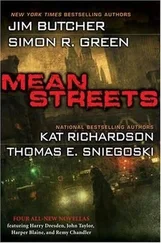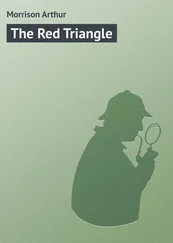Arthur Morrison - Tales of Mean Streets
Здесь есть возможность читать онлайн «Arthur Morrison - Tales of Mean Streets» — ознакомительный отрывок электронной книги совершенно бесплатно, а после прочтения отрывка купить полную версию. В некоторых случаях можно слушать аудио, скачать через торрент в формате fb2 и присутствует краткое содержание. Жанр: foreign_prose, на английском языке. Описание произведения, (предисловие) а так же отзывы посетителей доступны на портале библиотеки ЛибКат.
- Название:Tales of Mean Streets
- Автор:
- Жанр:
- Год:неизвестен
- ISBN:нет данных
- Рейтинг книги:3 / 5. Голосов: 1
-
Избранное:Добавить в избранное
- Отзывы:
-
Ваша оценка:
- 60
- 1
- 2
- 3
- 4
- 5
Tales of Mean Streets: краткое содержание, описание и аннотация
Предлагаем к чтению аннотацию, описание, краткое содержание или предисловие (зависит от того, что написал сам автор книги «Tales of Mean Streets»). Если вы не нашли необходимую информацию о книге — напишите в комментариях, мы постараемся отыскать её.
Tales of Mean Streets — читать онлайн ознакомительный отрывок
Ниже представлен текст книги, разбитый по страницам. Система сохранения места последней прочитанной страницы, позволяет с удобством читать онлайн бесплатно книгу «Tales of Mean Streets», без необходимости каждый раз заново искать на чём Вы остановились. Поставьте закладку, и сможете в любой момент перейти на страницу, на которой закончили чтение.
Интервал:
Закладка:
Round the corner there are a baker's, a chandler's, and a beer-shop. They are not included in the view from any of the rectangular holes; but they are well known to every denizen, and the chandler goes to church on Sunday and pays for his seat. At the opposite end, turnings lead to streets less rigidly respectable: some where "Mangling done here" stares from windows, and where doors are left carelessly open; others where squalid women sit on doorsteps, and girls go to factories in white aprons. Many such turnings, of as many grades of decency, are set between this and the nearest slum.
They are not a very noisy or obtrusive lot in this street. They do not go to Hyde Park with banners, and they seldom fight. It is just possible that one or two among them, at some point in a life of ups and downs, may have been indebted to a coal and blanket fund; but whosoever these may be, they would rather die than publish the disgrace, and it is probable that they very nearly did so ere submitting to it.
Some who inhabit this street are in the docks, some in the gasworks, some in one or other of the few shipbuilding yards that yet survive on the Thames. Two families in a house is the general rule, for there are six rooms behind each set of holes: this, unless "young men lodgers" are taken in, or there are grown sons paying for bed and board. As for the grown daughters, they marry as soon as may be. Domestic service is a social descent, and little under millinery and dressmaking is compatible with self-respect. The general servant may be caught young among the turnings at the end where mangling is done; and the factory girls live still further off, in places skirting slums.
Every morning at half-past five there is a curious demonstration. The street resounds with thunderous knockings, repeated upon door after door, and acknowledged ever by a muffled shout from within. These signals are the work of the night-watchman or the early policeman, or both, and they summon the sleepers to go forth to the docks, the gasworks, and the ship-yards. To be awakened in this wise costs fourpence a week, and for this fourpence a fierce rivalry rages between night-watchmen and policemen. The night-watchman – a sort of by-blow of the ancient "Charley," and himself a fast vanishing quantity – is the real professional performer; but he goes to the wall, because a large connection must be worked if the pursuit is to pay at fourpence a knocker. Now, it is not easy to bang at two knockers three-quarters of a mile apart, and a hundred others lying between, all punctually at half-past five. Wherefore the policeman, to whom the fourpence is but a perquisite, and who is content with a smaller round, is rapidly supplanting the night-watchman, whose cry of "Past nine o'clock," as he collects orders in the evening, is now seldom heard.
The knocking and the shouting pass, and there comes the noise of opening and shutting of doors, and a clattering away to the docks, the gasworks and the ship-yards. Later more door-shutting is heard, and then the trotting of sorrow-laden little feet along the grim street to the grim Board School three grim streets off. Then silence, save for a subdued sound of scrubbing here and there, and the puny squall of croupy infants. After this, a new trotting of little feet to docks, gasworks, and ship-yards with father's dinner in a basin and a red handkerchief, and so to the Board School again. More muffled scrubbing and more squalling, and perhaps a feeble attempt or two at decorating the blankness of a square hole here and there by pouring water into a grimy flower-pot full of dirt. Then comes the trot of little feet toward the oblong holes, heralding the slower tread of sooty artisans; a smell of bloater up and down; nightfall; the fighting of boys in the street, perhaps of men at the corner near the beer-shop; sleep. And this is the record of a day in this street; and every day is hopelessly the same.
Every day, that is, but Sunday. On Sunday morning a smell of cooking floats round the corner from the half-shut baker's, and the little feet trot down the street under steaming burdens of beef, potatoes, and batter pudding – the lucky little feet these, with Sunday boots on them, when father is in good work and has brought home all his money; not the poor little feet in worn shoes, carrying little bodies in the threadbare clothes of all the week, when father is out of work, or ill, or drunk, and the Sunday cooking may very easily be done at home, – if any there be to do.
On Sunday morning one or two heads of families appear in wonderful black suits, with unnumbered creases and wrinklings at the seams. At their sides and about their heels trot the unresting little feet, and from under painful little velvet caps and straw hats stare solemn little faces towelled to a polish. Thus disposed and arrayed, they fare gravely through the grim little streets to a grim Little Bethel where are gathered together others in like garb and attendance; and for two hours they endure the frantic menace of hell-fire.
Most of the men, however, lie in shirt and trousers on their beds and read the Sunday paper; while some are driven forth – for they hinder the housework – to loaf, and await the opening of the beer-shop round the corner. Thus goes Sunday in this street, and every Sunday is the same as every other Sunday, so that one monotony is broken with another. For the women, however, Sunday is much as other days, except that there is rather more work for them. The break in their round of the week is washing day.
No event in the outer world makes any impression in this street. Nations may rise, or may totter in ruin; but here the colorless day will work through its twenty-four hours just as it did yesterday, and just as it will to-morrow. Without there may be party strife, wars and rumors of wars, public rejoicings; but the trotting of the little feet will be neither quickened nor stayed. Those quaint little women, the girl-children of this street, who use a motherly management toward all girl-things younger than themselves, and toward all boys as old or older, with "Bless the child!" or "Drat the children!" – those quaint little women will still go marketing with big baskets, and will regard the price of bacon as chief among human considerations. Nothing disturbs this street – nothing but a strike.
Nobody laughs here – life is too serious a thing; nobody sings. There was once a woman who sang – a young wife from the country. But she bore children, and her voice cracked. Then her man died, and she sang no more. They took away her home, and with her children about her skirts she left this street forever. The other women did not think much of her. She was "helpless."
One of the square holes in this street – one of the single, ground-floor holes – is found, on individual examination, to differ from the others. There has been an attempt to make it into a shop-window. Half a dozen candles, a few sickly sugar-sticks, certain shrivelled bloaters, some bootlaces, and a bundle or two of firewood compose a stock which at night is sometimes lighted by a little paraffine lamp in a tin sconce, and sometimes by a candle. A widow lives here – a gaunt, bony widow, with sunken, red eyes. She has other sources of income than the candles and the bootlaces: she washes and chars all day, and she sews cheap shirts at night. Two "young men lodgers," moreover, sleep upstairs, and the children sleep in the back room; she herself is supposed not to sleep at all. The policeman does not knock here in the morning – the widow wakes the lodgers herself; and nobody in the street behind ever looks out of window before going to bed, no matter how late, without seeing a light in the widow's room where she plies her needle. She is a quiet woman, who speaks little with her neighbors, having other things to do: a woman of pronounced character, to whom it would be unadvisable – even dangerous – to offer coals or blankets. Hers was the strongest contempt for the helpless woman who sang: a contempt whose added bitterness might be traced to its source. For when the singing woman was marketing, from which door of the pawnshop had she twice met the widow coming forth?
Читать дальшеИнтервал:
Закладка:
Похожие книги на «Tales of Mean Streets»
Представляем Вашему вниманию похожие книги на «Tales of Mean Streets» списком для выбора. Мы отобрали схожую по названию и смыслу литературу в надежде предоставить читателям больше вариантов отыскать новые, интересные, ещё непрочитанные произведения.
Обсуждение, отзывы о книге «Tales of Mean Streets» и просто собственные мнения читателей. Оставьте ваши комментарии, напишите, что Вы думаете о произведении, его смысле или главных героях. Укажите что конкретно понравилось, а что нет, и почему Вы так считаете.












